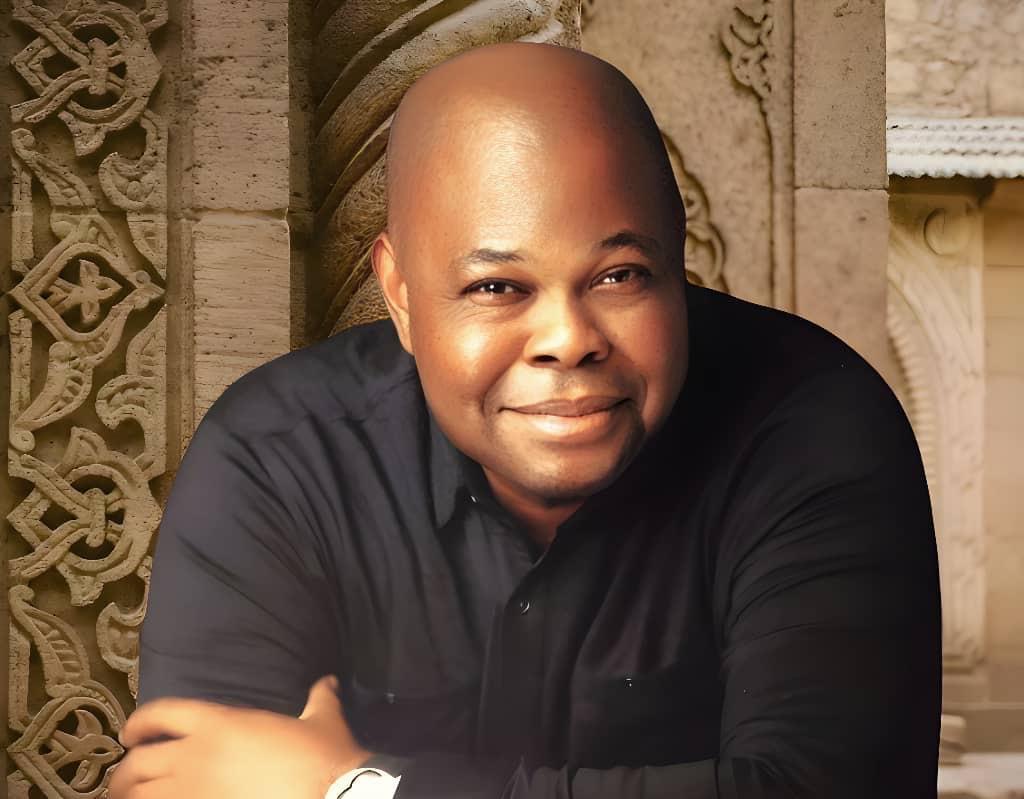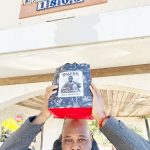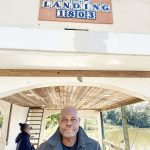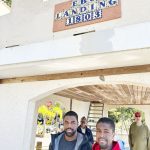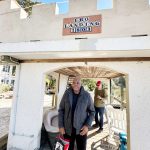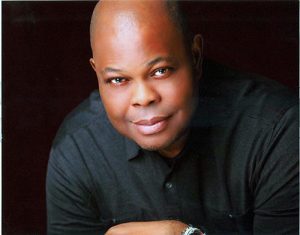In the New Year, I wrote and published an essay titled; Igbo Landing, The Courage of A People. This stirring story was about humans who were kidnapped and abducted from Africa, brought in chains and shackles to the cold farmlands of America, and subjected to tortuous inhuman conditions by white slave-owners. In this essay, I chronicled a trip that took me and some members of my family to Savannah, Georgia, to celebrate the New Year in that historic city; a city of tremendous historical significance, and equally notorious for the conduct of its inhabitants during the era of the slave trade and the enslavement of blacks in America.
While in Savannah, we took a two-hour drive to St. Simon’s Island, the site of the legendary historic event of how several slaves of Igbo descent in 1803, resisting enslavement, martyred themselves by marching into the river choosing to drown rather than be subjected to the dehumanizing hardship and wickedness of slavery, and living lives worse than dying, in the hands of heartless and soul less whiteman.
The story of our journey to the slave ports and islands of Georgia, and what transpired there is not fiction. It is the true story of part of the wicked history of the world. It is a living story of the creation of inhumane and beastly treatment by the white people towards Africans, and of a continuing system that has failed to impress even the most godless of humans, and that which also has defied proper reasoning and comprehension. Only a few courageous people have risen up to question how these things happened and how the world has not known or shown any true contrition, or has acquired some form of resolution, accountability, and acceptability or if you may, culpability to these crimes. The question of time and periodic limitations to these crimes, must not be allowed, as those who benefited, are still reaping the fruits of slavery and are still very much around. In short, there should be no generational escapism in this matter.
Now, hundreds of years after these events occurred, those things that happened within the larger context of the world that have shaped our history, have wider consequences today. We must tell and write about them, because if we falter and
neglect them, more malicious patterns of evil will rise, as we now live in a time of crisis that may ultimately destroy the world.
Our stay in Savannah, one of the slave seaports of America, was quite eventful. As we enjoyed the ambiance of being in a city filled with holiday revelers and history hunters, I was reminded constantly of the history of slavery which this city harbored and whose smelly and fetid stench has been carefully hidden and stored very far away from the recent memories of the world, and mostly from blacks – the descendants of those who bore the heavy and painful brunt of that wicked, barbaric and inhumane period. Being in the midst of this history was very depressing and extremely draining.
I was a bit reluctant to go sightseeing, as the thoughts of what my ancestors suffered, for no good reasons, in the hands of their fellow human beings, were unbearable. As we drove around Savannah and the highways of Georgia, there was a certain feeling of unease that enveloped me, causing me to feel a certain charged-fear as if the ghosts of the slaves that died from the despicable treatment meted to them, were all over the place.
Then came the story of the Whipping Tree. The Whipping Tree is a huge oak tree that is as old as history can recall. It is strong and still alive in Savannah, Georgia. These trees were places where African slaves were punished by being tied to the trees, whipped and lashed with strong horsewhips over their bare bodies until they were subdued or killed. The white slave owners were known to have boasted loudly that they lashed lessons and sense into the “barbaric” Africans, by sardonically enjoying drawing blood, tears, urine and faeces upon helpless black bodies. Many of these whipping trees have withstood many years of the agonies and pains they inflicted on blacks with evidence of the deep grooves caused by the whips still manifesting today. What is baffling, however, is that the descendants of the “whippers” are feigning ignorance of the sins of their ancestors with many set to revisit these crime scenes with relish, and scorn, and they are ready to have repeat performances if allowed. This and many other evils of slavery presented the most shameful chapters in America’s history. It is indeed, the shame of America; “the home of the Free and of the Brave”.
While in Savannah, I began to explore the stories behind the Whipping Trees episodes. The more I dug into this, the more I began to realize that slavery which was
appropriately dubbed “America’s Original Sin”, was even more soiled than I had ever imagined. The era of this vileness under the shadows of involuntary servitude presented a horrifying sobering and shocking imagery of the horrors of human labor trafficking, and the inhumanity of the pains and wickedness that accompanied the heinous crime. To not be grossly disturbed by this, especially by those who have profited most from it; the white race, is to not see the continuing insidious legacy of racism that spilled over from this, and that which still prevails today in our social, economic and political lives.
One of these whipping trees still stands today in the historic city of Savannah, one of the largest slave sales sites in Georgia history. History has it that in March of 1858,
436 men, women, and children were sold by the Butler Plantation estates. This event held at Ten Broeck Race Course, on the outskirts of Savannah, was to pay off the debts of the plantation owner Pierce Mease Butler. At this auction, African slaves were tied to trees and whipped senselessly to the delight of the sellers and buyers of human beings. Legends have described this and many other events as tragically dehumanizing and sad to the point that the skies opened and God wept for three days, as the roots of these whipping trees also wailed from these strange events.
Philosophically, I have always perceived the true basis of morality, law and justice as lying and abiding in human nature itself. But whenever I ponder the events of the slave era and the human elements of it, I recall the influence of the Philosopher Plato. Plato in defining his ideal state identified three social classes – rulers, auxiliaries and producers – the producers being farmers and the common people. For him, it is therefore the role of reason for the rulers (in this case the slave owners) to use the auxiliaries (enforcers) to rule and govern the producers (the slaves), and in so doing, keeping in check the potentially unruly desires of the producers to revolt. This must be the pattern of justice that these slave traders and the slave owners adopted to enforce and justify their trade. I disagree with this philosophical rational control of humans. Instead, I see an ideal state where these three social classes will work harmoniously by complementing their differences and bringing their respective differences, strengths and weaknesses together. There should be no slaves, and there should be no slave owners. But the wicked impulses of human nature seemed to have descended on the whiteman in Savannah, Georgia and elsewhere.
For those who think that the issue of slavery and the continuing conversation about race exploitation in America is a forgotten story, they should visit Savannah to experience the sheer magnitude of the legacy of slavery as left in the hidden relics of the horrors of the time. My odyssey here, is to attempt to personalize the larger story through my own experiences as they echo through me, and through others. The sobriety of these stories as I have recounted in this, and in my many other writings, lifted in reality, very heavy, and somewhat terrible burden from me. It has sadly become an extension of the predictable and unfortunate documentation of an indictment of the well-known historic white racism and exploitation of the darker- skinned peoples of this world.
To trace the genesis of the slave trade as painful as it is, provides us with the underlying dystopian and post-apocalyptic nature of it. By the fifteenth century, Portuguese traders invaded Africa under the pretense that they were looking to mine and trade in gold. It didn’t take long before their greed shifted to trading in human beings. This signaled the start of the savage stealing, capturing and removal of people from Africa to Europe, North and South America and the Caribbean. Shortly, slave traders from Britain, France, The Dutch lands, Spain, Denmark, Germany, Sweden, and of course, America joined in the criminal trade.
It is estimated that over 20 million men, women and children were forcibly stolen and taken away from Africa in the many centuries of the Atlantic slave trade between 1501 and 1875, and that nearly 2 million perished during the agonizing horrors of the journeys, dying from disease and the harsh inhumane treatment by the wicked slavers. Many also perished in despair by jumping overboard from the slave ships into the ocean, committing suicide.
Africans were forcibly taken away and separated from their cultures, their food, their weather, their customs and traditions, their languages and their families. Crossing the oceans in chains and shackles, and in total dislocation, they faced hunger, fear, starvation, torture and death. Reminiscent of what is happening today at the US-Mexico borders, it was a common practice for children to be separated and taken away from their parents, and for members of partnered couples to be separated from each other and sold indiscriminately to different slave buyers.
The conditions and lives of enslaved people were hellish, brutish and punitive. It was also pitiless as slaves worked under severe and unfavourable conditions in the winter and under the blistering sun in the summer without decent food or water from sunup to sundown in plantations, farms and in the homes of luxuriating lazy wicked slave owners as cooks, servants and sex objects. The slaves, both women and men, and even very young children, were raped and sodomized by the barbaric white people. These acts were as quisquous as they were demonic and bilious.
From the moment that blacks set their chained foot in America, to today, they have constantly suffered the brutal injustice of racism. Imagine that Mohammed Ali after winning a Gold Medal at the Olympics for his country, proudly returned home and was refused a simple drink of water by whites at a restaurant because his skin happen to be a different colour.
Even with the 1776 US Declaration of Independence authored by Thomas Jefferson, who incidentally was a slave owner, that: “we hold these truths to be self-evident, that all men are created equal, that they are endowed by their Creator with certain unalienable Rights, that among these are Life, Liberty and the pursuit of Happiness”, slavery continued thereafter, and uptill today, is still thriving, but under new names and methods. This is a tragic flaw and The Shame of America.
The choices made by white people to enslave Africans were deliberate. They were choices driven by greed, avarice and laziness, and enhanced largely by white animosity toward blacks. Racism was at the center of these choices, and we must never allow the illogical argument of some unavoidable social and anthropological reasons being responsible for whites enslaving blacks and subjecting them to such ugly and outrageous conditions of torture and hardship that wrenches the gut.
How did the world stand by and justify the abduction, and the seizure of blacks; men, women and even children, and never viewed it as a crime for centuries? Blacks ever since, have lived in fear and in terror, and under the shadows of these criminal acts that inflicted with maximum force, unforgettable pains that will never recede from their memories as the mutation of those events becomes inevitable.
The most unfortunate aspect of this history is the absence of detailed accounts and records of these events. Blacks who were principally illiterate and were deliberately not educated by the white slavers, were unable to accurately write and properly document the history of most of the wickedness of slavery. Unlike the Jews who were functionally literate and wealthy who recorded the horror of the Jewish Holocaust, the blacks did not possess the capacity to preserve and properly document the history of their decimation in the hands of the white race. The case of the hunter telling the story of the hunt became the norm and the typical situation. Or better still, the hunter maintaining a stoic silence on how they hunted blacks was more the order in the agonizing circumstances.
Christianity and other Religions? What roles did they play in the slave trade? Forget religion and discard Christianity in the roles they played during slavery. We must scrutinize and have a dissociation of the devious roles of religion in slavery. The so-called White Christians and other religious practitioners who participated in slavery, together with those that stood by, watched, and profited from this crime, did not know God. Their adherence to the doctrine of Christianity and to the teaching of Jesus Christ and those of other gods, resided in their soiled pockets and in their dirty souls. They professed the name of Christ as a tool to deceive the unknowing. How can we forget what the slave owners did to the Bible, the Holy Book? We must recall how they redacted, corrupted and rewrote portions from the Bible to justify the sins of slavery, asking the black slaves to accept that God commanded that they be enslaved, raped, sodomized, dehumanized by the whites. They wrote these lies into the Bible, and as their contemporary Evangelicals are wont to do today, used their diabolical religion to destroy the world.
The White Bible was allegorical in all sense of the word, and was duplicitously used as a living testimony to the fraud and deception of the racist whiteman. A visit to The Museum of the Bible in Washington DC, where the fake bible is preserved, will expose the devious and untrustworthy actions of the slave owners, and the complicity of the Church in slavery.
Even as many things have changed since slavery; like the many legislations for civil and human rights, desegregation, etc; the core missing element is love. Because we cannot legislate love, we must expect and demand that those who are beneficiaries of the evils of slavery must profess and show love towards blacks, and not succumb to the present atmosphere of hate coming from white politicians and their followers today.
As I try to tell and write about the story of the realities of the events of past centuries and what happened to millions of black people, I must redirect our voices to the events that took the lives of three million innocent people in Biafra. I have written widely about this event and extensively in my book; Biafra, The Horrors of War, The Story of a Child Soldier. Retracing our steps to this sordid war presents us with an exposition resembling the horrors experienced by African slaves in Savannah, even if the pains and horrors may have manifested in various and different forms – although both events presented similar levers of obliterating pains and disgust.
Despite the contrast between the events in Savannah and those in Biafra hundreds of years apart, they both reflected the understanding that cruelty to any human is a sin against God no matter the religion the perpetrators practiced. The history of slavery is replete with white animosity towards blacks even after emancipation whereby whites resorted to the killing of blacks, dispossessing them of their rights and properties, and burning down their farmlands, homes and whatever remained of their dignity. Similarly, when I returned home to my hometown of Awka after the Biafran war in 1970, all the homes were looted and burned to the ground presenting a sense of pervasive paralysis similar to what slaves encountered in America.
These inhumane treatment of human beings have brought many rational people, particularly blacks and other oppressed people around the world, to lose faith in humanity. The concept of humanity being like an ocean; where even if a few drops of the ocean are dirty, the ocean still remains clean, has been eviscerated by the many wicked deeds perpetrated by many of the white race upon blacks, and those of some blacks on their fellow black folks. This brings to question the argument that we should not allow the actions of a twisted minority prejudice us against the whole. But what happens when the whole is silent and looks the other way when the so-called minority perpetrates their evil deeds?
As we ponder the context of these humongous human depravities in Savannah, in Biafra and elsewhere, the total lack of morals, values and the general disregard for other living beings, we must be worried that the histories of these events have been largely ignored. Despites clear evidence of the scars of these atrocities, the mythology of deniability by the dead and the living perpetrators is utterly incredulous.
The many black Africans who perished under the whip on the Whipping Trees in Savannah, and the millions who died in Biafra from the British bullets and bombs, and from the Soviet fighter jets flown by merciless Egyptian mercenary pilots, or from the hunger disease-induced deaths caused by the heartless Nigerian military and their mindless civilian politicians, thread to a terrible past in our dark evil history. The legacy of American big corporations; Coca Cola, Sun Trust Bank, Sloss Industries, U.S. Steel, Walter Industries, Wachovia Bank, Georgia Power and so many other large Southern companies, is deeply embedded in the gains from slavery and forced-labor. Equally, most of the prosecutors of the Biafra war and the genocide that followed are today owners of the lucrative oil wells that were located in the Biafra territories. They lied when they claimed that they were fighting in that rancid war to unite the country, when, as evident today, they had their eyes and long throats on these oil fields.
Recounting the Whipping Tree stories in Savannah and tying them to the Biafra genocidal war, reveal the real truth about these dubious actions. I believe that those who inherited the benefits and the wealth created by both products, must also inherit the liabilities and the moral burdens there from. As painful as it may be to plow and revisit our ugly pasts, we must accept with sobriety the fissures that have distorted and destroyed our societies, and view with cautious optimism if we have learned any lessons and emancipated ourselves from the abject brutalization of our pasts that unfortunately still linger on, not allowing us the chance to reconcile with the paradoxes of the turmoil around us and the world today.
OKEY ANUEYIAGU
A Professor of Political Economy
Is the Author of Biafra,
The Horrors of War, the Story of A Child Soldier
March 2025

